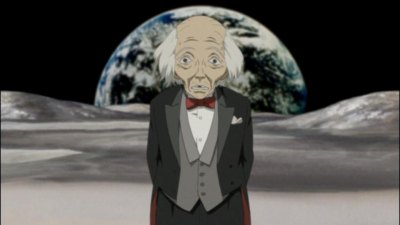|
Friction ( something to ponder on...... )
|
| Friction is a force which will continually oppose any force applied , be it an object on a surface or an object droping from the sky. There is static friction and there is dynamic friction. Static friction is the frictional force against a stationary object whereas dynamic friction is frictional force against a moving object. Static friction will increase as the force applied increases too. It's at its maximum point right before the object moves, then the frictional force drops as the object starts to move. Here is the question: Why would the friction right before an object moves be higher than that of an object after it moves? Could it be 'cold fusion'? |
|
Re: Friction ( something to ponder on...... )
Link |
by
|
I have to say that is one of the largest non sequitors that I have ever heard. Fusion, cold or otherwise, is a nuclear reaction that creates a heavier element from lighter ones and produces massive amounts of heat in the process. The fac that the friction decreases once an object begins to move is a result of the fact that friction is a relation between two objects. When an object is in motion, the interaction with a surface is lessened because the momentum prevents the build-up of friction at any one point, as happens when the object is stationary. It is similiar to how a falling object hs the most kenetic energy right before it hits the ground. Are you ready to contend that there is cold fusion every time an onject falls to the ground?  The greatest joy is the shameful joy The greatest joy is the shameful joy |
|
Re: Friction ( something to ponder on...... )
|
| sorry for not making my statement clear. What i'm meaning to say was that static friction & dinamic friction is applied on objects moving on flat surface. Let me say something here: cold fusion need not be a nuclear reaction..... in another context, two or more molecules can fuse temporarily, meaning there is a stronger bond between these molucules, 'fusing' at temperatures much,much lower than a so-called nuclear reaction. Ever wonder why when something lays stationary for some time, then after that, it's harder to move it? |
|
Re: Friction ( something to ponder on...... )
Link |
by
|
|
the intuitive answer is, rhetorically, why does it seem harder to get up from a sitting position than to walk forwards? it has to do with momentum. namely, conservation of momentum. what is friction REALLY? you said a lot about it without really explaining anything. friction is nothing more than a macroscopic phenomena demonstrating conservation of momentum and the electromagnetic force. solid materials are solid due to the electromagnetic force, that is what holds the atoms in place. when you pull on one atom, it in turn tugs on the rest. that is why you can move an entire solid object by applying force to only one point on that object. friction is a result of bumpy surfaces. the material being moved gets caught, on a microscopic level, on the bumpy parts of the surface it is moving along. it is kind of like velcro, only much smaller. obviously, when you pull on a velcro buckle, you are pulling against all the tiny plastic hairs. once you break free of several, the rest come off easier. thats friction in a nutshell. cold fusion is pure science fiction! Josh says that "cold fusion need not be a nuclear reaction". the fusion of two nuclei into one is, by definition, a NUCLEAR phenomena. what else could it possibly be?! something you MUST understand, Josh, is that the nuclear force and the electromagnetic force are TOTALLY separate. they may have properties in common, both being fundamental forces and all, but they are NOT THE SAME THING. if i have a piece of gold, and i tape it to my head, that does not make me worth my weight in gold. if you take a molecule, or object, and stick it to another object, they do not become one, and they do not liberate large amounts of energy!!! You said that "two or more molecules can fuse temporarily". This is untrue. Molecules do not "fuse". They "stick together" or chemically interact, or whatever. Not fuse. Fusion is a specific term used to explain a specific process which involves a specific force and exchange of energy, not to be confused with car tires, rubber shoes, or duct tape. The problem for you seems to be one of terminology. You are confusing "sticking to things" with "fusion". Using duct tape is not performing fusion, it is being MacGyver 


|
|
Re: Friction ( something to ponder on...... )
Link |
by MiCHiYo μ
on 2006-10-20 01:57:00
|
|
I guess our newbie Josh here needs a lesson about friction. Allow me to write what I have learnt so far... Friction is the force that goes against the relative motion of two surfaces. It arises because the surfaces involved ar not perfectly smooth in a micoscropic scale, meaning, if you grab the smoothest piece of material that you can find and put it under a microscope, you'll see that there are little humpy stuffies. That's because it's not perfectly smooth. Nothing is. Now, when the two things that are being "rubbed" (actually the word rub is the wrong word to use) stay at rest (they are not moving), this is called static frictio. If the two surfaces are actually moving and actually rubbing against each other, then it is called dynamic or kinetic friction. Now, on with static friction, where the two surfaces are actuallt not moving. Static friction changes depending on the applied force. Up to a certain maximum force, the resultant force is equal to zero. E.g. if you put a heavy block in front of you, and you try to move it, any value of you trying to move it below the certain maximum force will not get you to move the block. Ergo, the value of the maximum force depends on - the nature of the two surfaces in contact, and - the normal reaction force between the two surfaces. If the two surfaces are kept in contact by gravity but are not actually moving, then the maximum force does NOT depend on the area it has contact with. But, once the object starts moving, then it the maximum value slightly decreases. ... Wow. I wrote all THAT? haha~ Anyhow, I hope this clears up the whole friction topic that you got mixed up with fusion... unless you want me to go and lecture you about fusion as well. ^____^ -michiyo- 
beware. the QueeN oF SiGGieS is here. kill that mr. scrolly or your siggy goes BAI BAI. it's solidarity month! let's be united! +[-- GeNDouNiaNS: i am half-back! visit my blog by clicking on the siggie banner! updated: 12.07.07 --]+
~*..:: i'm never going to give up... if i do, then it wasn't worth trying. ::..*~
|
|
Re: Friction ( something to ponder on...... )
|
| That was a stupid question, wasn't it? Sorry, I didn't learn this in school, you know. Whatever michiyo said, I either learned from other sources or my teacher. It is sad that friction, an interesting topic is not really talked about over where I study....... And the 'cold fusion' thing, just something I heard somewhere. Thanks for sheding some light on this topic. Physics rocks! |
|
Re: Friction ( something to ponder on...... )
Link |
by MiCHiYo μ
on 2006-10-20 03:24:02
|
|
Physics SO UBER hella bloody rocks. You're right on that one. >< In case you need other things to be explained, which, according to you, are not explained in school, don't fret. You can just ask us, even if it was stupid. You get knowledge out of asking anyways. ^^ So, do you want me to go on with fusion? Or would you prefer gendou himself to answer the fusion part? Oh, wait. I think he did already. >< -michiyo- 
beware. the QueeN oF SiGGieS is here. kill that mr. scrolly or your siggy goes BAI BAI. it's solidarity month! let's be united! +[-- GeNDouNiaNS: i am half-back! visit my blog by clicking on the siggie banner! updated: 12.07.07 --]+
~*..:: i'm never going to give up... if i do, then it wasn't worth trying. ::..*~
|
